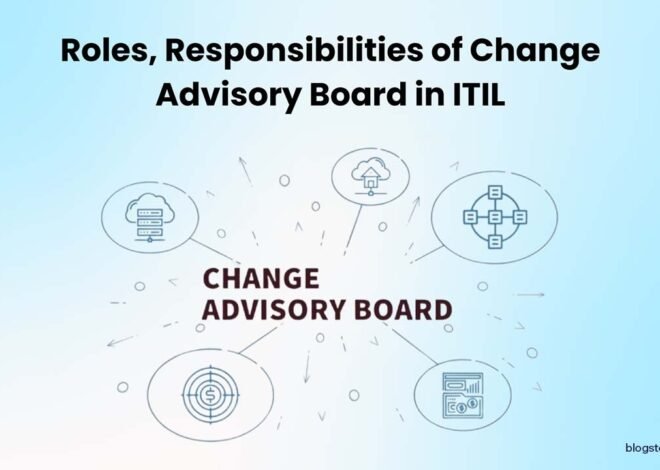
Christmas Bonus: Unwrapping The Magic – Employee Appreciation
As the festive season approaches, a warm and generous spirit sweeps across workplaces in the United Kingdom. Employers don their Santa hats, not only to spread holiday cheer but also to express their gratitude to their dedicated workforce. This enchanting gesture, known as the Christmas bonus, is a time-honored tradition that brings joy to employees and fosters a sense of togetherness in the office.
In this comprehensive exploration, we will embark on a journey to unravel the mystique of Christmas bonuses.
Whether you are an employee eagerly anticipating this seasonal delight, an astute member of the human resources (HR) team, or someone considering a career in HR, this article is your compass to navigate the enchanting world of holiday rewards.
Please note that all information regarding taxable bonuses is current as of February 2022, in accordance with Her Majesty’s Revenue and Customs (HMRC) guidelines.
Chapter 1: The Christmas Bonus Unveiled
The True Essence of Christmas Bonuses:
Picture this: It’s the holiday season, and you walk into the office with a sparkle in your eye, knowing that a little extra something awaits you.
That’s the magic of a Christmas bonus. It’s a tangible token of appreciation from your employer, a heartfelt ‘thank you’ for your year-round dedication.
Christmas bonuses come in various forms. Some employees receive an additional sum of money, while others enjoy an extra day off or a thoughtful gift.
However, it’s crucial to ensure fairness in distributing these rewards. In HR circles, it’s considered best practice to offer the same holiday bonus to all employees on the same level.
This principle of equity ensures that everyone feels valued and appreciated.
Chapter 2: Types of Christmas Bonuses
The Assortment of Festive Rewards:
Christmas bonuses are as diverse as the holiday season itself. Here are some of the delightful forms these bonuses can take:
(i) The Monetary Windfall: This is perhaps the most traditional form of Christmas bonus. A financial boost to your bank account, it helps balance the scales amidst the holiday expenses.
The amount may vary, depending on your role or level of responsibility within the company.
(ii) Time Off For Merriment: For many, the greatest gift of all is time spent with loved ones.
Some employers offer the gift of leave or flexible working hours during the festive season. It’s a gesture that can boost morale and employee happiness.
(iii) The Gift of Giving: In the spirit of generosity, some companies present their employees with tangible gifts.
It could be a small token like a coffee cup or a more substantial offering, such as a store voucher. The value of the gift often corresponds with the company’s financial standing.
(iv) A Heartfelt Note: Money isn’t the only way to convey appreciation.
A sincere and personal note can work wonders. Many companies encourage managers to pen heartfelt letters to their team members, fostering a deeper sense of connection.
Chapter 3: The Benefits of Bestowing Christmas Bonuses
Spreading Joy Beyond the Festive Season:
Christmas bonuses are not just tokens of appreciation; they are investments that yield valuable returns for both employers and employees. Here’s how:
(i) Elevating Employee Morale: The holiday season can be a hectic time at work.
Increased workloads and year-end deadlines can take a toll on employee spirits. A Christmas bonus is like a beacon of light, boosting morale and productivity.
(ii) Cultivating a Positive Company Culture: When everyone receives the same bonus, a sense of fairness and recognition permeates the workplace.
Employees feel appreciated, leading to greater loyalty and a more cohesive company culture.
Chapter 4: Beyond the Holidays – Non-Holiday Bonuses
Surprises All Year Round:
Christmas bonuses may steal the spotlight, but there’s a world of non-holiday bonuses waiting to be explored.
These bonuses, offered independently of festive seasons, come in various shapes and sizes:
(i) Performance-Based Bonuses: In roles like sales, performance-based bonuses are a common practice.
Achieving specific targets can lead to a rewarding bonus, motivating employees to excel.
(ii) Spontaneous Rewards: Sometimes, a random act of kindness goes a long way.
HR departments or management may notice an employee facing challenges and decide to provide a small bonus as a gesture of appreciation.
(iii) Employee Recognition: Recognition can be as valuable as monetary rewards. ‘Employee of the month’ schemes create a healthy competitive spirit, acknowledging outstanding contributions.
(iv) Percentage-Based Bonuses: These bonuses are calculated based on an employee’s current pay.
Employers often use this approach to encourage employees to understand the company’s revenue generation better.
Chapter 5: Taxable vs. Non-Taxable Bonuses
The Taxing Dilemma:
When it comes to bonuses, the taxman has a say. Understanding the distinction between taxable and non-taxable bonuses is crucial, and HR professionals play a vital role in ensuring compliance. Here’s the crux of the matter:
(i) Taxable Bonuses: These bonuses are subject to taxation by the government and include:
(ii) Monetary Bonuses: The tax system operates on rate bands, and receiving a substantial bonus may push employees into a higher tax bracket for that portion of income. However, a once-off non-cash benefit of up to €500 is often tax-free.
(iii) Gifts above a Certain Value: If the value of a gift exceeds a specific threshold, it becomes subject to taxation. Industrial samples, however, are exempt from this rule.
(iv) Non-Taxable Bonuses: Certain bonuses escape the taxman’s clutches, including:
(v) Transportation Perks: Employers can provide employees with bicycles or free parking without incurring taxes.
(vi) Business Technology: Providing employees with technology for business use, such as laptops or phones, is tax-free if used appropriately.
(vii) Course or Exam Fees: Employers can reimburse employees for relevant courses or exam fees, fostering personal development and job effectiveness.
(viii) Meals: Providing meals, especially in canteens accessible to all employees, is a tax-free bonus that enhances convenience and productivity.
Chapter 6: The Universal Credit Christmas Bonus and Other Government Schemes
Incorporating Government Benefits into the Equation:
In addition to employer-driven bonuses, the government also plays a role in spreading festive cheer to eligible individuals. Here are some government schemes that complement Christmas bonuses:
(i) Universal Credit Christmas Bonus: The Department for Work and Pensions (DWP) administers the Universal Credit Christmas Bonus, providing extra financial support to those receiving Universal Credit.
This bonus is a valuable addition to household budgets during the holiday season.
(ii) Winter Fuel Payments and Christmas Bonus: For eligible individuals, Winter Fuel Payments, coupled with the Christmas Bonus, offer a substantial financial cushion during the colder months.
These payments are designed to help with heating costs and are a welcome relief during the festive season.
(iii) DWP Christmas Bonus Universal Credit: Universal Credit recipients can also benefit from the DWP Christmas Bonus, ensuring that those in need receive a boost to their finances during the holidays.
(iv) PIP Christmas Bonus: The Personal Independence Payment (PIP) Christmas Bonus is another government initiative that brings joy to individuals with disabilities. It provides additional financial support when it’s needed most.
(v) Christmas Bonus for Carers Allowance: Carers who receive Carer’s Allowance may also be entitled to a Christmas Bonus. This recognition of their dedication and hard work is a heartfelt gesture from the government.
Chapter 7: Crafting the Perfect Christmas Bonus Strategy
Bringing the Magic to Life:
Now that we’ve delved deep into the enchanting world of Christmas bonuses and government schemes, it’s time to explore how to craft the perfect bonus strategy for your workplace, taking into account these additional benefits.
After all, the manner in which you bestow these rewards can make all the difference in creating a memorable and impactful experience for your employees.
(i) Assessing Company Finances: The first step in designing your Christmas bonus strategy is to evaluate your company’s financial health.
A thorough understanding of your financial standing empowers you to make informed decisions. Assess revenues, budgets, and projections to determine the amount and type of bonuses you can offer.
(ii) Choosing the Right Name: Consider the nomenclature of your bonus. While Christmas is a widely celebrated holiday, it’s essential to be inclusive.
You may opt for a more generic term like ‘holiday bonus’ to ensure that everyone, regardless of their religious beliefs, feels included and appreciated.
(iii) Employee Criteria: Determine the criteria for eligibility. Are all employees entitled to a bonus, or do factors like tenure, performance, or role come into play?
Clarity in eligibility criteria helps manage expectations and avoids any potential disputes.
(iv) Customization and Personalization: Recognize that not all employees are alike. Some may prefer extra cash, while others would cherish additional time off.
Offering a range of bonus options allows employees to choose what resonates with them the most.
(v) Communication is Key: Communicate the bonus structure and criteria transparently to your employees.
Clarity fosters trust and appreciation. Additionally, create a sense of anticipation by announcing the bonus well in advance of the holiday season.
(vi) Celebrate as a Team: The presentation of bonuses can be an event in itself. Consider hosting a small gathering or ceremony to celebrate as a team.
This not only adds a personal touch but also reinforces the feeling of togetherness.
(vii) Tax Implications: As an HR professional, it’s your responsibility to ensure that employees are aware of the tax implications of their bonuses.
Provide them with clear information about any deductions and how they can be managed.
(viii) Feedback Loop: After the bonus season concludes, gather feedback from employees.
Understanding their thoughts and feelings about the bonus experience can help you fine-tune your strategy for the following year.
(ix) Long-Term Planning: Christmas bonuses are not just an annual occurrence but an integral part of a broader employee engagement strategy.
Consider how these bonuses align with your overall HR goals and long-term vision for the company.
Chapter 8: Spreading Cheer Beyond the Office
Embracing the Spirit of Giving
While Christmas bonuses primarily focus on rewarding employees for their hard work, they can also extend beyond the office walls.
Encouraging employees to pay it forward and spread the festive cheer is a beautiful way to amplify the positive impact of these bonuses.
(i) Charitable Donations: Offer employees the option to donate a portion of their bonus to a charity of their choice.
Not only does this contribute to a worthy cause, but it also strengthens the sense of community within your organization.
(ii) Volunteer Opportunities: Organize volunteer initiatives during the holiday season, allowing employees to give their time to local charities or community projects.
This not only reinforces the spirit of giving but also enhances team bonding.
(iii) Supporting Local Businesses: Encourage employees to shop locally and support small businesses with their bonuses.
This not only benefits the community but also aligns with the values of sustainability and community engagement.
(iv) Employee-Led Initiatives: Empower your workforce to come up with creative ways to spread cheer.
Whether it’s organizing a toy drive, adopting a family in need, or hosting a holiday-themed event for underprivileged children, involving employees in these initiatives can be immensely rewarding.
Chapter 9: The Future of Employee Appreciation
Adapting to Changing Times
As we look ahead, it’s evident that the landscape of employee appreciation is evolving.
The traditional Christmas bonus, while timeless in its sentiment, may undergo changes to align with the evolving needs and preferences of the modern workforce.
(i) Flexible Rewards: In an era of remote and flexible work arrangements, the concept of bonuses may evolve to offer greater flexibility.
Tailoring rewards to suit individual preferences, such as wellness programs, remote work allowances, or professional development opportunities, may become more prevalent.
(ii) Tech-Driven Solutions: Technology will continue to play a significant role in the administration and distribution of bonuses.
Automated systems can ensure fairness and transparency, while data analytics can help HR professionals make more data-driven decisions.
(iii) Personalized Recognition: The future of employee appreciation lies in personalized recognition.
Tailoring bonuses and rewards to match each employee’s unique preferences and contributions will foster a deeper sense of belonging and appreciation.
(iv) Sustainable Practices: Companies are increasingly embracing sustainability.
Bonuses and rewards may align with eco-friendly practices, such as offering carbon offsets or supporting sustainable initiatives in the name of employees.
May You Like Also: Business Analyst Jobs: Architects of Innovation & Efficiency
To Conclude
In the world of Christmas bonuses, the tradition thrives on gratitude, unity, and joy.
As an HR professional, you have the power to keep this tradition alive.
We’ve explored the significance of bonuses, their various forms, and their impact on employees and company culture.
We’ve also delved into taxable and non-taxable bonuses, including government benefits like the Universal Credit Christmas Bonus.
But the essence lies in appreciation and connection, creating a workplace where employees thrive.
As you approach each holiday season, remember your role in bringing this tradition to life.
May your Christmas bonuses radiate warmth, joy, and togetherness, leaving a legacy of appreciation.
You May Like Also:













Your article helped me a lot, is there any more related content? Thanks!